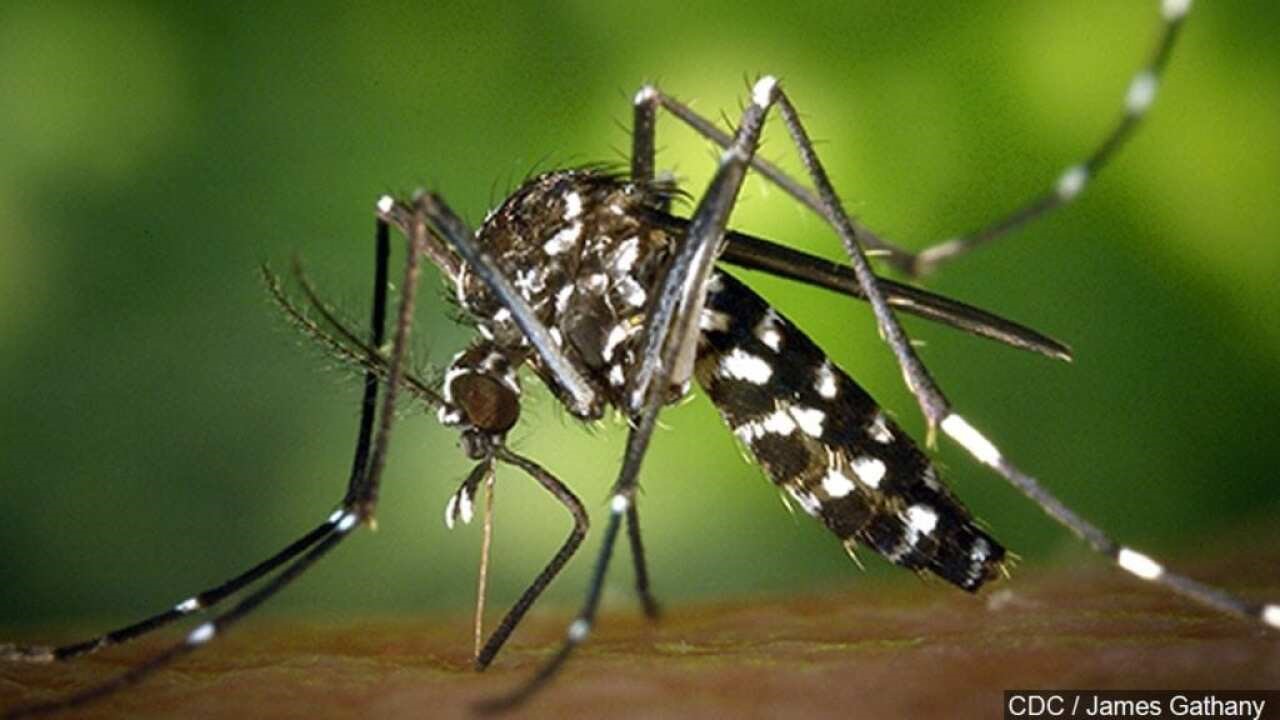West Nile Virus Cases Rising Nationwide Amid Mosquito Season
West Nile virus (WNV) is the leading cause of mosquito-borne disease in the continental United States. It is most commonly spread to people by the bite of an infected mosquito. Cases of WNV occur during mosquito season, which starts in the summer and continues through fall. There are no vaccines to prevent or medications to treat WNV in people.
Fortunately, most people infected with WNV do not feel sick. About 1 in 5 people who are infected develop a fever and other symptoms. About 1 out of 150 infected people develop a serious, sometimes fatal, illness. You can reduce your risk of WNV by using insect repellent and wearing long-sleeved shirts and long pants to prevent mosquito bites.[1]

Figure 1. West Nile Virus Cases Rising Nationwide Amid Mosquito Season
West Nile Virus Cases Rising Nationwide Amid Mosquito Season is shown in Figure 1. June 19, 2023 – State and local health officials around the country are reporting the first cases of West Nile virus of the season in humans and urging people to take action to protect themselves from the mosquito-borne disease.
In the past 2 weeks, new cases have been reported in Iowa and Nebraska, adding to previous 2023 reports from Arizona, Georgia, Illinois, Louisiana, Oregon, Pennsylvania, and Wyoming. A mosquito at a monitoring site near Houston tested positive last week for the potentially fatal virus, prompting local health officials to begin evening spray operations in the area where the mosquito was found, according to an announcement from Harris County Public Health.
According to the CDC, which compiles local reports, there have been 13 human cases of West Nile virus in 2023. In 2022, there were 1,126 cases, including 90 deaths.
Among this year’s 13 cases reported to the CDC so far, eight people add severe neuroinvasive disease, which means the disease spread to the nervous system. Such severe symptoms typically occur in 1 in every 150 cases of West Nile virus, and can include encephalitis, which is inflammation of the brain, or meningitis, which is inflammation of the membranes that surround the brain and spinal cord.
Three of the neuroinvasive cases occurred earlier this year amid an outbreak in Maricopa County, AZ, where the disease is considered endemic, according to an April 28 report from the CDC.[2]
The CDC says West Nile virus is the most common disease spread by mosquitoes in the continental U.S. Local health officials sample mosquitoes to guide mosquito control strategies. So far this year, the CDC has received 28 reports of mosquitoes testing positive. Those mosquito testing reports came from Arizona, California, Florida, Indiana, Louisiana, and Texas.
West Nile virus is transmitted to people by the bite of an infected mosquito, but it can also be spread to humans if they handle a dead bird that is infected. The CDC says there are no medications to treat the virus in people. Most people who are infected do not feel sick, and 1 in 5 people infected develop a fever and other symptoms like headache, body ache, or a rash. Prevention strategies are to wear insect repellent and to wear long-sleeved shirts and long pants to avoid mosquito bites.[3]
What can be done to prevent the spread of WNV?
Protecting yourself from mosquito bites will help prevent the spread of WNV. Use of repellents may be helpful in minimizing exposure. To minimize exposed skin, people spending time outdoors in mosquito-infested areas can use insect repellents containing DEET. Consider wearing long sleeves and tucking pants into socks and shirt into pants when outdoors at dusk or dawn, the time of day when mosquitoes are most active. More information on repellents go to Environmental Protection Agency- insect-repellents. In addition:
- Be sure to follow label directions.
- Try to reduce the use of repellents by dressing in long sleeves and pants tucked into socks or boots.
- Children should not handle repellents. Instead, adults should apply repellents to their own hands first and then gently spread on the child's exposed skin. Avoid applying directly to children's hands. After returning indoors, wash your child's treated skin and clothing with soap and water or give the child a bath.
- Do not apply near eyes, nose or mouth and use sparingly around ears.
- After returning indoors, wash treated skin with soap and water.[4]
References:
- https://www.cdc.gov/westnile/index.html
- https://www.webmd.com/a-to-z-guides/news/20230619/west-nile-virus-cases-rising-nationwide
- https://www.medscape.com/s/viewarticle/993384?form=fpf
- https://www.health.ny.gov/diseases/west_nile_virus/fact_sheet.htm#
Cite this article:
Gokula Nandhini K (2023), West Nile Virus Cases Rising Nationwide Amid Mosquito Season, AnaTechmaz, pp.465

